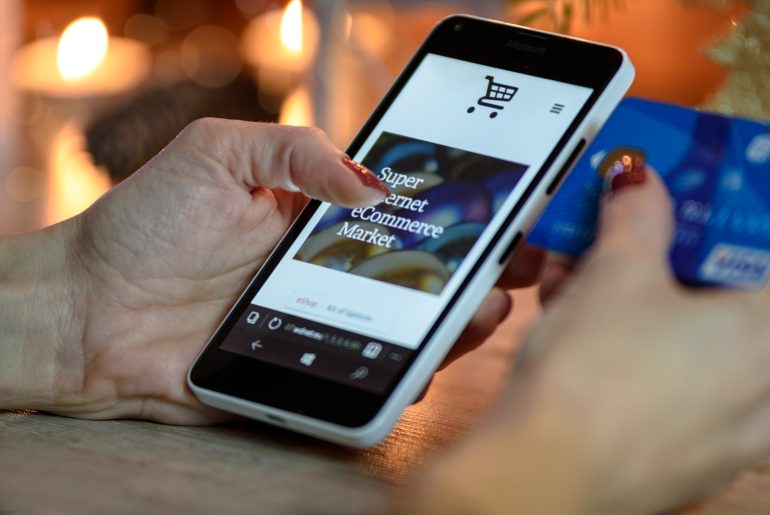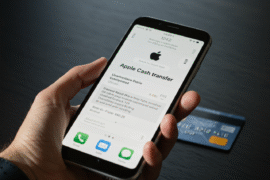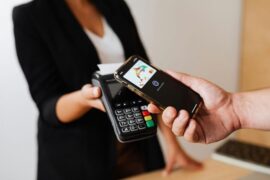This article may contain references to products or services from one or more of our advertisers or partners. We may receive compensation when you click on links to those products or services. Nonetheless, our opinions are our own.
The information presented in this article is accurate to the best of our knowledge at the time of publication. However, information is subject to change, and no guarantees are made about the continued accuracy or completeness of this content after its publication date.

Updated by Albert Fang
Nowadays, the digitization of transactions has taken the world by storm. Digital wallets and payment processors have become primary mediums for online shopping and money transfers. The main reason this trend has gained so much momentum in the last few years is that convenience had a major role to play in how consumers shop online. Entering and re-entering credit or debit card information every time you purchase something online quickly became a nuisance.
Today, people are checking out Zelle vs Venmo comparison in order to determine which option is more suitable for their needs and which option has more features that will offer actual value to their users. But with so many choices and factors to consider, it can be difficult to make the right decision. In order to make that process more seamless, let’s have a look at the difference between payment processor and a digital wallet.
What are digital wallets?
A digital wallet, also known as an e-wallet or virtual wallet, is a type of software usually in the form of a mobile app, that allows users to store and manage their financial information and money in one secure place. It can be used to make payments online, transfer money between accounts, and even store loyalty cards. Digital wallets are becoming increasingly popular due to their convenience and security features.
They allow users to quickly access their funds without having to enter any personal information each time they make a purchase. It’s a seamless way to shop online without any inconveniences and delays. If you see something you like on an e-commerce store, you can just make a purchase without any problems using your digital wallet. Think of it as pulling cash out of your real wallet to pay for the groceries at the convenience store.
What are payment processors?
Payment processors are companies that facilitate the transfer of funds between a merchant and a customer. They provide merchants with the ability to accept payments from customers in various forms, such as credit cards, debit cards, e-checks, and other payment methods. Payment processors also provide merchants with fraud protection services and secure data storage for customer information.
Payment processors typically charge a fee for their services, which can vary depending on the type of transaction being processed. In other words, think of payment processors as digital points of sale (PoS). Each time you use a payment processor you have to re-enter your credit or debit card information and go through the same process for every online transaction you make.
How does a digital wallet differ from a payment processor?
As mentioned before, a digital wallet is a type of payment system that allows users to store their financial information, such as credit card numbers and bank account details, in an online account. A payment processor, on the other hand, is a service provider that processes payments between two parties. The main difference between a payment processor and a digital wallet is the way in which they process payments.
A payment processor is used to process payments made via credit cards or debit cards, while a digital wallet stores information related to online purchases, such as shipping addresses and payment methods which you can sue anywhere and at any time. Payment processors are typically provided by banks or other financial institutions, while digital wallets can be provided by third-party providers like Apple Pay or PayPal, for instance.
Payment processors are used to securely transfer money from one account to another, while digital wallets provide customers with an easy way to store and manage their online purchases without having to manually enter their billing information each time. That being said, digital wallets are more easy and convenient to use since they act just the same like real wallets, while payment processors are just like interacting with a PoS system in the store.
Whether you choose a payment processor or digital wallet is entirely up to you. Both options have their pros and cons so it down to personal preferences as to which one should be used to make purchases online.

Reviewed and edited by Albert Fang.
See a typo or want to suggest an edit/revision to the content? Use the contact us form to provide feedback.
At FangWallet, we value editorial integrity and open collaboration in curating quality content for readers to enjoy. Much appreciated for the assist.
Did you like our article and find it insightful? We encourage sharing the article link with family and friends to benefit as well - better yet, sharing on social media. Thank you for the support! 🍉
Article Title: What Is the Difference Between Payment Processor and a Digital Wallet?
https://fangwallet.com/2022/12/21/what-is-the-difference-between-payment-processor-and-a-digital-wallet/The FangWallet Promise
FangWallet is an editorially independent resource - founded on breaking down challenging financial concepts for anyone to understand since 2014. While we adhere to editorial integrity, note that this post may contain references to products from our partners.
The FangWallet promise is always to have your best interest in mind and be transparent and honest about the financial picture.
Become an Insider

Subscribe to get a free daily budget planner printable to help get your money on track!
Make passive money the right way. No spam.
Editorial Disclaimer: The editorial content on this page is not provided by any of the companies mentioned. The opinions expressed here are the author's alone.
The content of this website is for informational purposes only and does not represent investment advice, or an offer or solicitation to buy or sell any security, investment, or product. Investors are encouraged to do their own due diligence, and, if necessary, consult professional advising before making any investment decisions. Investing involves a high degree of risk, and financial losses may occur including the potential loss of principal.
Source Citation References:
+ Inspo












































